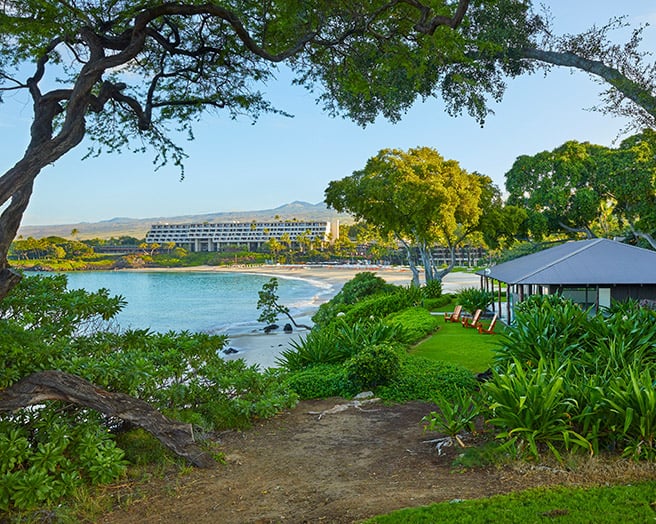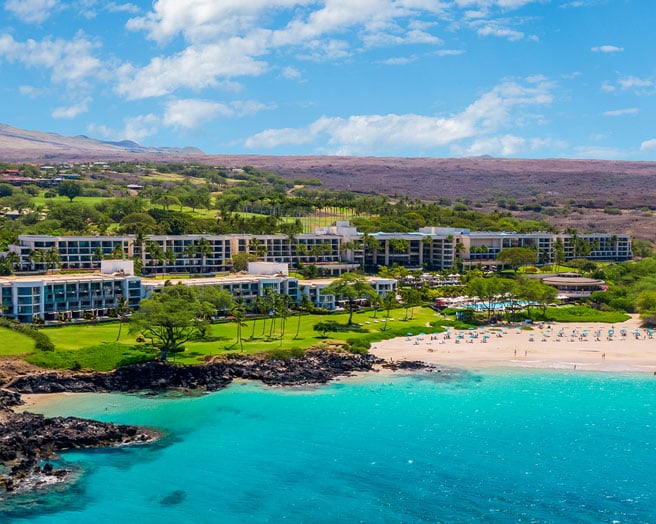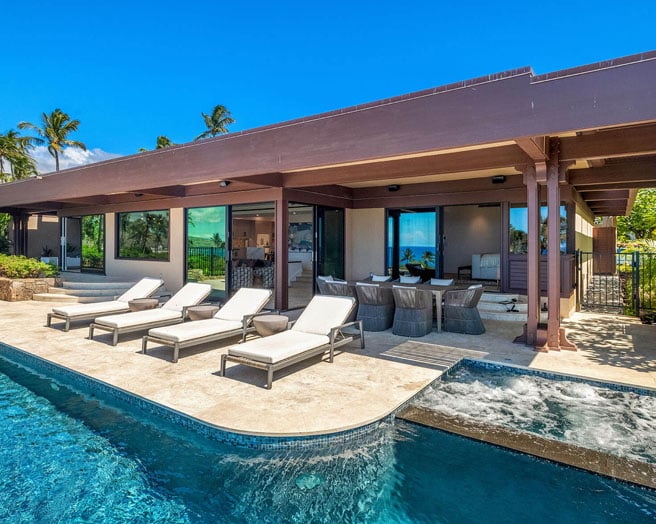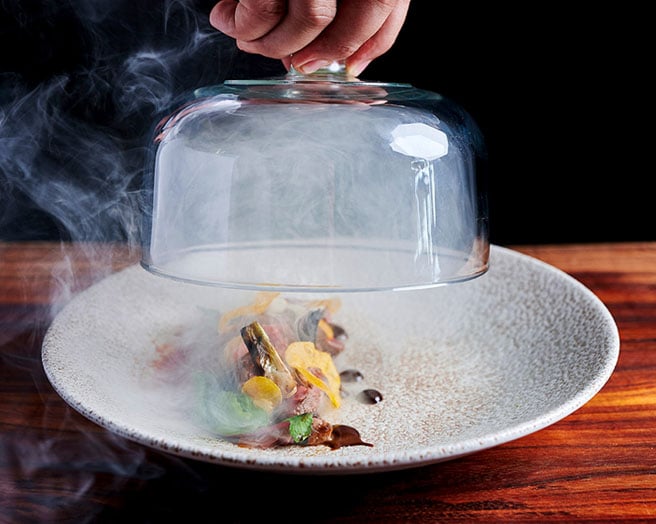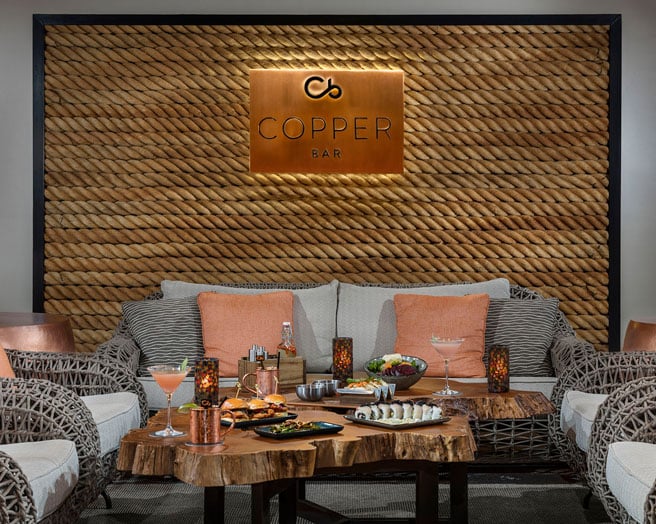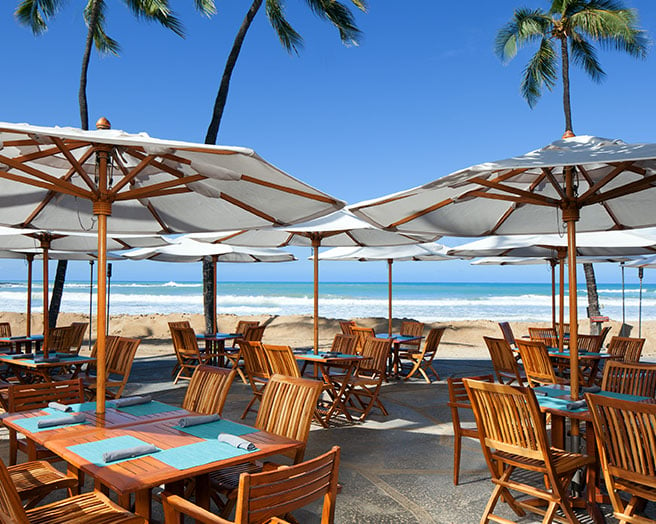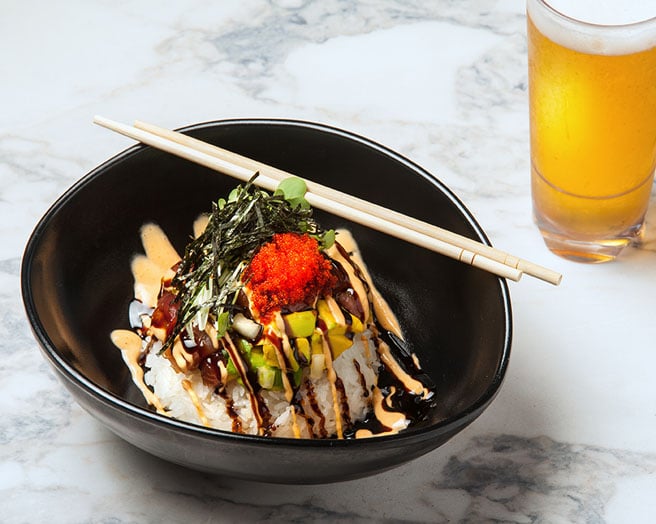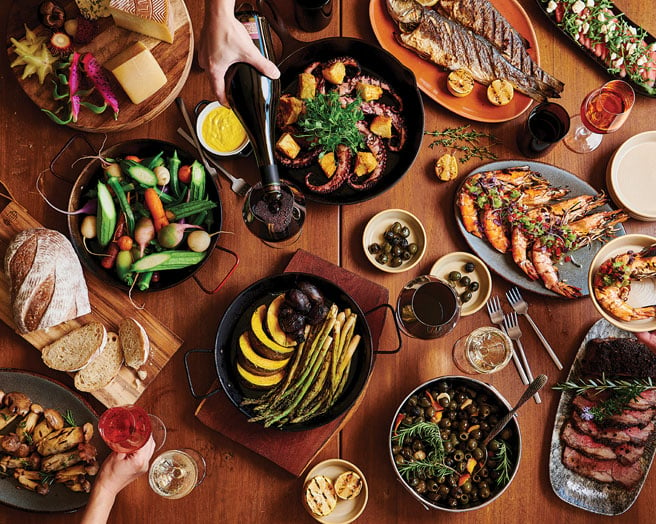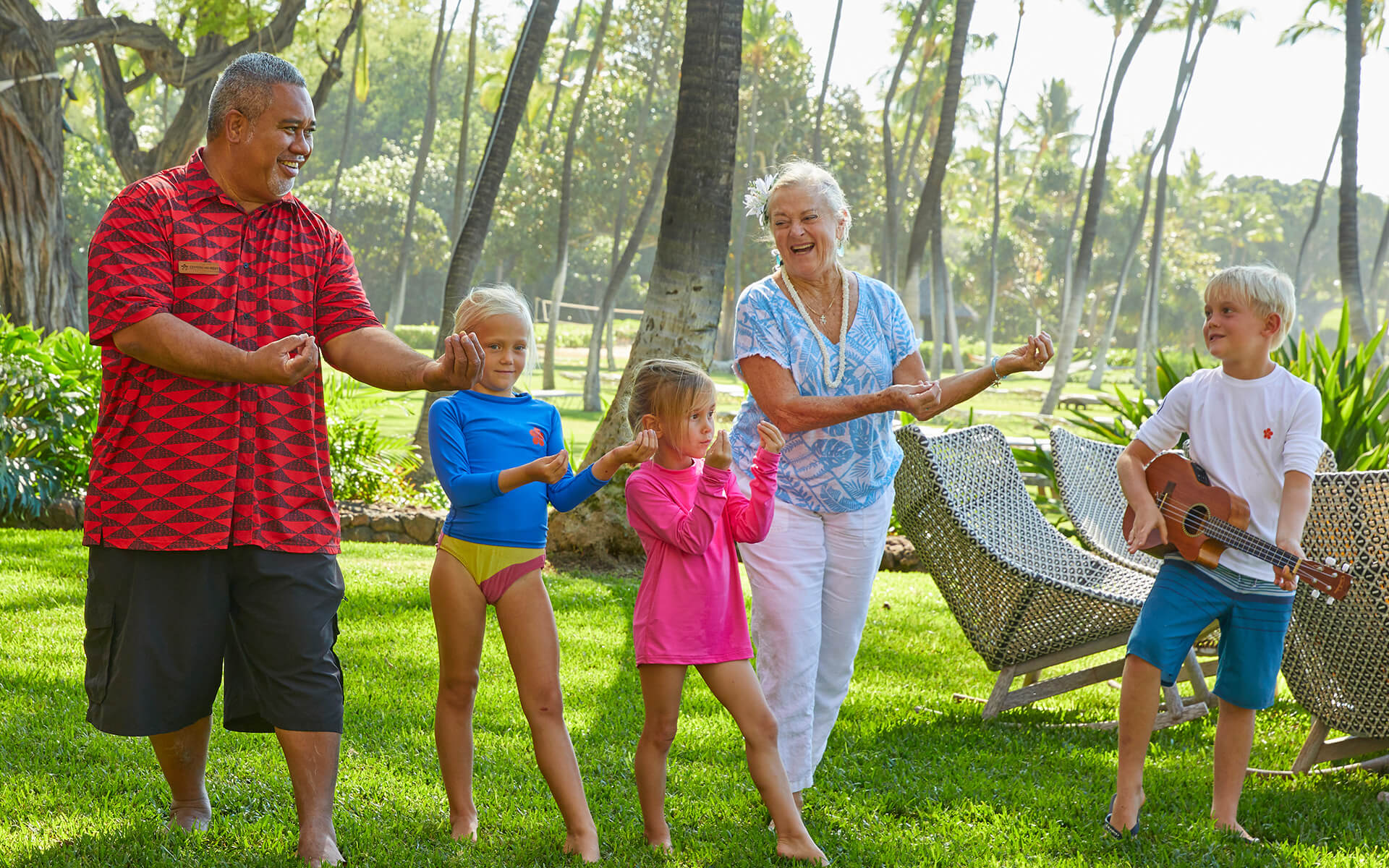Preserving a Culture
Back to Currents
Hawaiian culture can have many meanings, depending on who you ask. For some, the words might conjure up images of hula dancers, swaying their hips to a constant beat, while tapping and shaking their ‘uli‘uli (feathered handheld instrument). It might mean the sounds of a kumu (teacher) hula chanting an oli, or the melodic plucking of a ‘ukulele. To some, it may include the sharing of stories passed down from generations, the stories of their own ‘ohana (family), and the communities they lived in. For outsiders, it might take on a different image, the type perpetuated by Hawaiian advertisements of yore, of grass skirts and grass shacks, of Diamond Head standing tall and proud in the background, of tiny bubbles in the wine.
It is through these many meanings of Hawaiian culture that we seek to understand the real Hawai‘i, the true authentic history and culture of the people who originally called these islands home. Even for those who practice the culture and share it with outsiders for a living, the approaches of sharing their mana‘o (knowledge) will look and sound different. Yet one thing ties each individual thread together—a true love and desire to share their knowledge with others in the hope that this information will continue to be shared and passed down to generations beyond. I was honored to sit down with local legends whose job is not only to share their mana‘o with all who seek to learn from them, but who also live the values they teach.
At Fairmont Orchid, Ka‘iulani Blankenfeld holds the title of Director of Hawaiian Culture, though her journey to this position has been an interesting one, with stops in various hotel departments along the way. Yet, it has been her love for her culture, for hula in particular, that has helped her reach the position she holds today. She has a gentle disposition, a calmness about her, the perfect antidote in an oftentimes frazzled world. Ka‘iulani, or Kai, shares how she’s a “great product of immigration to Hawai‘i” with her Hawaiian, German, French, Welsh, Scottish, Portuguese and Japanese heritage, but that she was “raised in a household steeped in Hawaiian culture.” It was in this household that she learned the value of ho‘okipa (hospitality), and to treat everyone as family. “Hospitality runs deeply in my DNA. To be generous and kind was not optional. We were taught to live aloha.”
She was also brought up dancing hula, starting from the age of five years old. Hula has taught Kai to always think about nature, the ‘āina (land), and “learning to walk gently.” This example is a great way to approach visiting our islands, as well as other destinations we as travelers might visit. During her various lessons at the resort, she starts each class with guests introducing themselves, and then asking them their intention for taking each workshop. “Some people are confused by this question, but it makes things much more purposeful.” This intentionality comes from years of hearing her kūpuna (elders) and kumu remind her of doing things with a purpose, in order to perpetuate the culture properly. She hopes that visitors to our islands will travel intentionally and purposefully while here, to think about why they came here, and ask if they are leaving our islands better than when they found it. This may not be the first things people think of when choosing a vacation to Hawai‘i, but for those looking to share their culture in authentic ways, it’s important that visitors begin to look more deeply at what makes this place so special. And for people like Kai, she loves when visitors make these deeper connections, even sharing her culture with their friends and family back home. She shares a story of a lady who went back home to the mainland and found materials in her backyard to make a lei. “I tell my guests, when you make your first lei, I want to see it. I want you to take what you learned from me and use it.”
I next visited with “Uncle” Earl Regidor, Manager of the Ka‘ūpūlehu Cultural Center and Mea Ho‘okipa, or hospitality ambassador, at Four Seasons Resort Hualālai. There, he shared about his history and his love for teaching. Growing up on the Hāmākua Coast as the youngest of 12 children, Uncle Earl has worked on sugar plantations, joined the military, taught elementary school, and has been with Four Seasons Resort Hualālai since it opened its doors in 1996. His love of teaching, though, came from his family. “My parents said, everyday is a learning day, so you share what was shared with you to those who don’t know who we are.” These teachings helped Uncle Earl discover his love of sharing his knowledge with others. “The baseline is education at the Cultural Center,” he says. For Uncle Earl, his goal is to ensure each guest has a sense of place, and that they know where they are. The resort was a functioning fishing village, and the spirit of this village is still alive to this day. I ask Uncle Earl, do guests seek you out, or is it the other way around? He confides that though they share their programs with the guests, he’s excited by how enthusiastic residents of the resort and visitors look to learn from him and his staff. “Our visitors want to be immersed in the culture.”


“Hospitality runs deeply in my DNA. To be generous and kind was not optional. We were taught to live aloha.”
- Ka‘iulani Blankenfeld
Some of the workshops he and his team offer including making flower lei, learning about the ‘ukulele, as well as Hawaiian quilts. “We want them to know that these are more than just a beautiful piece, but now it has meaning.” This “meaning” is significant, as it begins to get to the heart of what it means to share his mana‘o with others, and why its so important to him. Uncle Earl hopes that guests will take what they learn here on our islands back home with them and share it with friends and family. He also wants guests to “see Hawai‘i through the eyes of our kūpuna,” and to let them know that aloha is not for sale but must be shared authentically. “If they take one thing back with them, it’s the spirit of aloha, then maybe there will be no more wars. We are placed on this honua (earth) to help each other, not hurt each other.”
Any time you get a chance to talk story with “Uncle” Danny Akaka, Kahu Hānai (knowledge keeper) at Mauna Lani, Auberge Resort Collections is pure joy. I felt fortunate to take a tour of the various resorts a few days later along the Kohala Coast with Uncle Danny and his wife Anna, both of whom were graduates from the first ever University of Hawai‘i at Mānoa Hawaiian Studies program. Both Uncle Danny and Anna are well known and highly respected members of the community, sharing their knowledge and wisdom in innumerable ways. Uncle Danny is a musician and storyteller, and his location along the Kalāhuipua‘a fishponds allow him to talk story and share his mana‘o of this fabled location to anyone and everyone who comes to listen. “We never close doors,” he says. But even though Uncle Danny has worked at the resort for almost 40 years in various capacities, he loves when guests ask a question that he doesn’t have an answer to. “If I don’t know, we’ll come back to my office and look up the answer together. That way we both learn.” It’s this mindset, of lifelong learning, that makes people like Uncle Danny, Uncle Earl and Kai stand out—while they may be highly respected custodians of authentic culture and wisdom, there is still always more to learn, and more room to grow.
But it’s Uncle Danny’s stories that keep people coming back. “Everyone likes to sit down and listen to stories,” he says, “That’s my forte.” He wants to share the stories from the ancestors and families who maybe didn’t always write them down but shared them orally. “It opens a window to the past for us.” Why is this so important to him, I ask. He shares how years ago he saw a man wearing a t-shirt that said on the back, “Hawaiian—Endangered Species.” “I thought, ‘Oh! Our kūpuna are passing, and now it’s on to us, our generation.’ If we don’t pass this knowledge on to those who are interested, then it would be lost.” And for Uncle Danny, these stories can help convey a thought or lesson in a way that is approachable. He credits his family for cultivating this passion, listening to the stories of his grandfather’s adventures during the times of Queen Lili‘uokalani, the kind of stories not found in books. “Stories are like time travel,” he says. “They open our eyes to what was and is no longer here. They help bring the past into the present.”
All three practitioners discussed the importance of sharing this knowledge not just with visitors, but it is their shared hope that their culture will be passed down for generations to come. So much knowledge and tradition has already been lost, so how can we ensure it continues when we are gone? This is why, when asked how she feels about folks in California using lei at graduation, Kai is happy to see the tradition continued. “I love it; it perpetuates the culture.” And perpetuating the culture, not just here in Hawai‘i, can help ensure it has staying power long after we leave our final footprints in the sand. For Uncle Earl, because of his 26-year tenure at the property, guests who might have come here as children now return with children of their own, seeking Uncle Earl out to pass along his knowledge to this next generation. And for Uncle Danny, the stories are not just aimed to Kānaka Maoli, or Native Hawaiians, but anyone interested in hearing them. “I hope visitors carry on the stories to share what they’ve learned here, and try to spread the culture of Hawai‘i to the world.”
Thankfully, there are more dedicated cultural practitioners helping to herald in a new, or at least, more enthusiastic appreciation for the culture of our islands by visitors. Up and down the Kohala Coast, there are those who are eager and candid about this desire to share their wisdom with others, who hope that those seeking them out do so with the willingness to truly learn.
At Mauna Kea Beach Hotel and The Westin Hapuna Beach Resort, Grayden Ha‘i-Kelly, Ho‘okipa Ambassador, and Healani Kimitete-Ah Mow, Aloha Ambassador, represent the cultural department at the Mauna Kea Resort. Healani shares, “I carry aloha in my heart as my foundation—and I say this because it truly keeps me grounded, connected to everything like the lands, ocean, the place so that we’re able to share our mo‘olelo (stories) and to have a relationship with something much deeper spiritually.” Both ambassadors, along with their team, share the beauty of our islands with visitors in varous ways whether through ‘oli classes, the handling of hulu (feathers) in creating various forms of art, as well as ‘ōhe kapala (bamboo stamps) to adorn kapa (mulberry cloth).
For Healani, sharing aloha is more than just hello and goodbye—it’s about being aware of all five facets of aloha: A for akahai, a kindness and gentleness to each other; L for lōkahi, or unity and togetherness as family; O for ‘olu‘olu, agreeableness, grace, and happiness in being kind to others; H for ha‘aha‘a, or humility in our hearts; and A for ahonui, or patience, to be expressed with perseverance. All these values are ones we can take with us in our travels—not just around the Hawaiian Islands, but anywhere in the world.
Many recognize that tourism is back, and it is important to our economy. However, the desire to ensure that those who do come to our shores arrive here ready to learn and experience the true, authentic Hawai‘i is the goal moving forward—a goal shared by the local government and tourism authorities as well. “What I love about what we do is we really are teaching hearts and minds with aloha—one guest at a time,” Kai shares. For those who are here for only a short period, we hope you get a chance to see Hawai‘i through the eyes of these passionate custodians of ancient mana‘o and tradition, as they continue to light the way from the past well into the future.
For those interested in learning more about how to visit our island in a thoughtful way, the Island of Hawai‘i has started the Pono Pledge, a voluntary pledge to be a more mindful visitor. To learn more, visit ponopledge.com.
